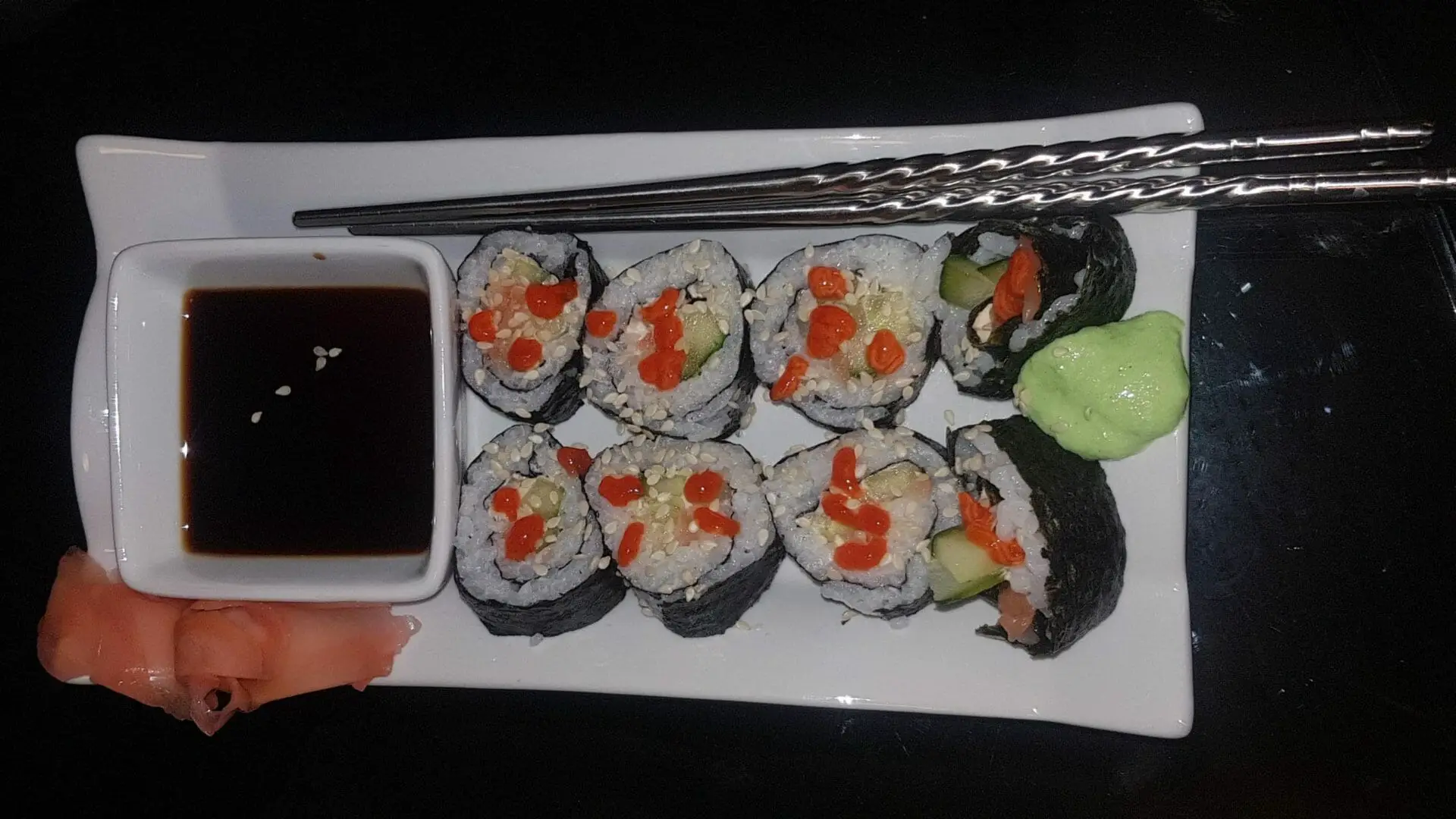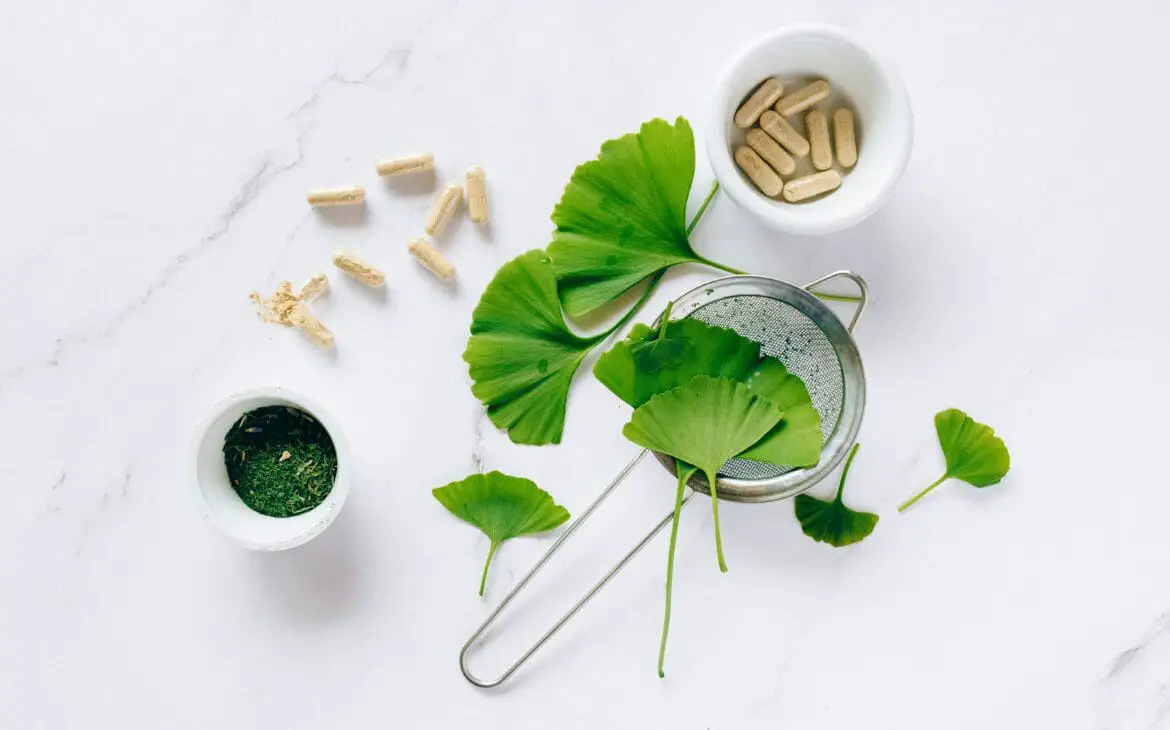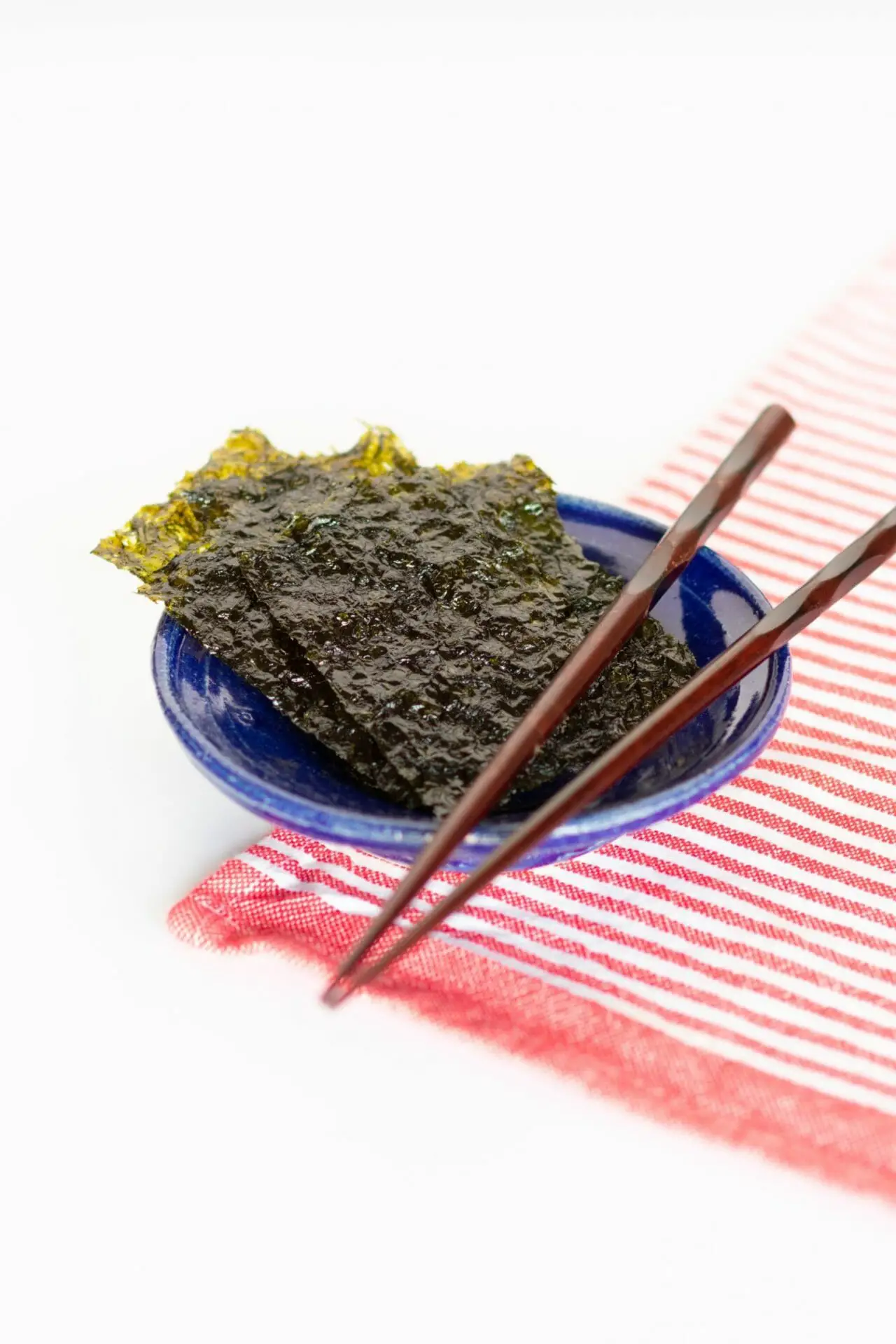What’s the benefits of seaweed? Did you know that seaweed is a superfood? It’s true! Seaweed is loaded with antioxidants, vitamins, and minerals. It’s also low in calories and carbs, making it a perfect food for those who are trying to lose weight or maintain a healthy lifestyle.
In this blog post, we will discuss the many benefits of eating seaweed. We will also provide some recipes for delicious and healthy seaweed dishes!

What you will learn
Benefits of Eating Seaweed
Seaweed is a nutrient-rich food that has many health benefits. For example, seaweed is a good source of iodine, which is essential for thyroid function. It’s also rich in vitamins A, C, and E, as well as magnesium, calcium, and iron. Seaweed has been shown to boost the immune system as well. Let’s look deeper into these benefits now.
Rich in Iodine
Iodine is essential to a women’s body because it helps regulate the thyroid. The thyroid is responsible for producing hormones that control metabolism. Iodine deficiency can lead to weight gain, fatigue, and even depression. Seaweed is a great source of iodine and can help women maintain a healthy thyroid.
A study from the Journal of Clinical Endocrinology & Metabolism found that women who consume a diet rich in iodine (from seaweed and other sources) have a lower risk of developing thyroid problems.
Here is a video you could listen to or watch with regards to 8 Unexpected Benefits of Iodine by Dr. Eric Berg DC
Click here if you have any trouble viewing or watching the video above.
How much iodine is in seaweed sheets?
Seaweed is one of the best dietary sources of iodine. In fact, just one gram of dried seaweed can contain up to 2500 micrograms of iodine! That’s more than the recommended daily intake for adults, which is 150 micrograms.
Vitamins and Minerals

Seaweed is also a good source of vitamins and minerals. For example, it’s rich in vitamins A, C, and E. These vitamins are important for maintaining healthy skin, hair, and nails.
Magnesium helps to relax muscles and ease anxiety.
Calcium is essential for bone health.
And iron helps to transport oxygen throughout the body.
Fiber
How much fiber is in seaweed?
This little snack has a lot of fiber. In fact, just one gram of seaweed contains about six grams of fiber! Fiber is important for maintaining regularity and preventing constipation.

Weight Management
Seaweed has been known to help with weight management. This is because it’s low in calories and carbs, but high in fiber. Fiber helps you to feel full and satisfied after eating, so you’re less likely to overeat. Seaweed is also a good source of protein, which is essential for weight loss.
A study published by the Journal of Nutrition found that women who ate seaweed every day lost more weight and body fat than those who didn’t.
Boosts the Immune System

Seaweed is also full of antioxidants, which are known to boost the immune system. A healthy immune system means that your body is better able to fight off infection and disease.
A study published in the journal Food & Function found that women who consumed seaweed had a higher concentration of white blood cells, which are responsible for fighting off infection.
After Child Birth Benefits
It is known that women who just deliver a baby should eat seaweed. This is because seaweed can help to heal the body after childbirth. Seaweed contains high levels of iron, which is important for women who are pregnant or breastfeeding.
A study published in The Journal of Nutrition found that women who ate seaweed during pregnancy had a lower risk of developing postpartum hemorrhage (excessive bleeding)
FAQ
How much seaweed should I eat per day?
The recommended daily intake is three grams or about one teaspoon.
Where can I buy seaweed?
You can find seaweed at most health food stores and even local grocery stores. You can also purchase it online as well.
Where does seaweed snack come from?
Seaweed is a type of algae that grows in the ocean. There are over 30,000 species of seaweed! It’s often used as a food or ingredient in Asian cuisine.
How to eat seaweed?
Seaweed can be eaten raw, cooked, or dried. It’s often used as an ingredient in sushi.
Is it bad to eat too much-dried seaweed?
Yes, it is possible to eat too much seaweed. This can lead to an iodine overdose, which can cause nausea, vomiting, and diarrhea. It’s important to limit your intake of seaweed to three grams per day.
Recipes with seaweed
If you’re looking for some delicious and healthy seaweed recipes, look no further! Here are some of our favorites:
– Seaweed Salad
– Spicy Seaweed Soup
– Sesame Seaweed Rice Balls
– Teriyaki Salmon with Seaweed
-Add to rice bowls, salads, curries, etc.
-And the obvious and delicious sushi
Have a look at this article from All Women Talk for some follow-along recipes.
Watch and follow along with this Wakame Seaweed Salad Recipe or click here.
Conclusion
As you can see, there are many benefits to eating seaweed. It’s a great source of iodine, vitamins, minerals, and fiber. Seaweed has also been shown to help with weight management and boost the immune system. So next time you’re looking for a healthy snack, reach for some seaweed!


Comments are closed.